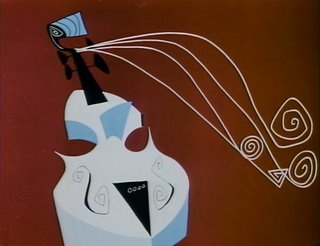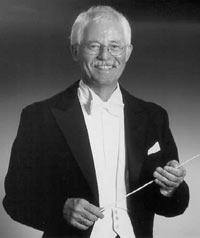Likewise, music education differs vastly. The country is full of government-supported music schools where teachers get paid a good salary, with all the usual perks such as long paid summer vacations and year-long maternity leaves. Yet students (who are chosen by auditions) pay only a small tuition, but have to play regularly for juries, to make sure they are working hard and making progress. Instrumental instuction has no place in universities; conservatories are there for that. Private teaching hardly exists as there is no need for it. The country's population is only slightly more than a half of New Jersey's, yet it produces an incredible number of world class musicians: conductors, instrumentalists, singers and composers, making the Garden State look like Afganistan in comparison. - Yale received a lot of publicity recently because of a gigantic anonymous donation to their Music School and news agencies were busy telling the country that there would be no more tuition for their music students. A new Curtis had been created, it was said. However, this was too good to be true: at least one student parent of mine was told the free tuition only applied to graduate students. Yes, it is free after the first $150,000.
I have never been able to figure out where a normal family with more than one child can come up with all the expenses of a college education, whether in 'ordinary' academics, sciences, medicine or the arts. Somehow I have managed to have done my share, only the youngest of my four daughters has college in front of her. None of them needed any guidance as to what to do: my 18-year-old found out on her own about this state's Running Start program and did her two first years of college for free while others were still wasting there time in regular high school. Her remaining tuition was paid in advance with the state's GET program, in fact she'll be using only have of the money during the two years at WWU in Bellingham. She instantly figured out that all schools are ripping students (or rather parents) off with enormously high room and board expenses and decided well in advance to rent a place with a girlfriend for much less money and far better privacy and space. The two older siblings both graduated a year early each and both have excelled in their fields: one has won numerous prestigious awards as a journalist and the other one has been hired as a staff doctor in geriatrics at UCLA.
Just the other day I was reading a Scientific American from a couple of years ago. In it was an article comparing bottled water with ordinary tap water. It is possible to spend 7,500 times more for a bottled product than what an equal amount of tap water costs. Yet in blind tests nobody preferred the expensive product. In a California restaurant with a hidden camera, bottles were filled from a hose in the back yard. They were labeled with foreign labels such as 'Faucet Water' in French and 'Water for an Ass' in Spanish; diners happily paid $7 per bottle and praised the product. In truth bottled water can be far worse than what you get from tap: a higher percentage has harmful bacteria and other residue in bottles. A municipal water system is carefully monitored; bottle the stuff and those restrictions disappear. It is all in the consumer's mind: if something costs more, it obviously has to be better than a cheaper or free product.
This brings me to the price of private music lessons. There are teachers who are charging an arm and a leg for their time, obviously claiming to be worth the money. Granted, there are better teachers and not-so-good ones. But is someone charging $120 per hour really twice as good as another with a $60 fee? Is your child making progress at twice the speed and becoming that much better a musician, or are you just being ripped off? What about someone in New York whose rates may exceed $300? Obviously, if the parent has money to burn, the price of a music lesson doesn't matter, but there are a lot of talented youngsters whose families are on a strict budget. Personally I feel that the more advanced the student is, the responsibility and demands on the teacher are higher and the fee should be adjusted accordingly, especially if the teacher has to be able to show how a passage or a phrase should sound. After all, an example is worth a thousand words. And obviously, the length of a lesson should vary based on the skill level: in what seems like an eternity to a beginner, the advanced young artist is just getting warmed up.
The Northern European system is perhaps like tap water: clean, tasty (especially if you use your Britta to filter out the chlorine) and inexpensive. We are obviously more attracted to Evian, but ought to once in a while read the label backwards.






